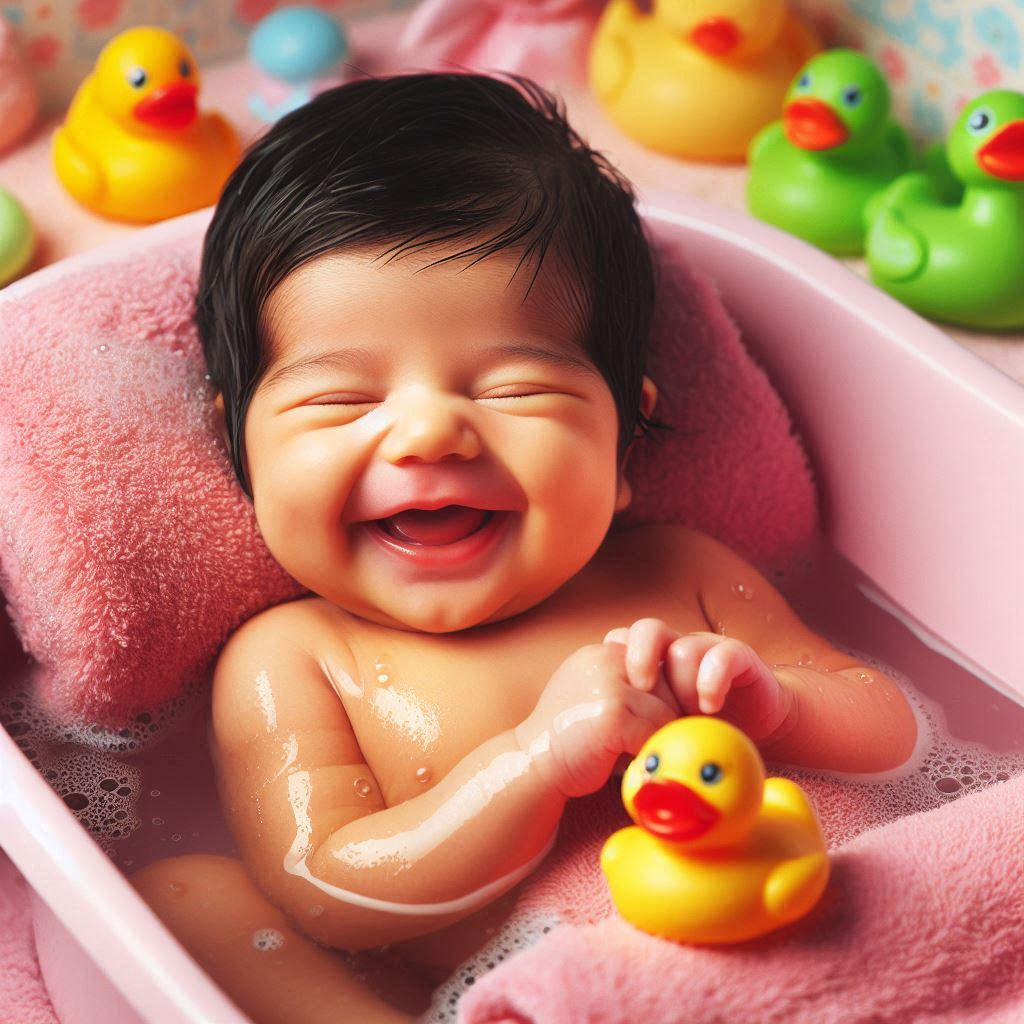How many times a newborn take a bath per week
Bringing a newborn home is exciting, but it can also be overwhelming. One of the many questions new parents often ask is how often they should bathe their little bundle of joy. Let’s dive into this topic and explore everything you need to know about bathing your newborn.
Quick Answer
For most newborns, bathing 2-3 times a week is enough. Daily baths aren’t necessary and can dry out your baby’s sensitive skin.
My Personal Experience
When I brought my daughter home, I was sure I needed to bathe her every day. I mean, that’s what adults do, right? Boy, was I wrong! After a few days of daily baths, her skin got so dry and flaky. It wasn’t until I talked to our pediatrician that I learned less is often more when it comes to newborn baths.
Why Not Bathe Daily?
You might be wondering, “If we adults shower daily, why shouldn’t babies?” Well, there are a few good reasons:
- Delicate skin: Newborns have super sensitive skin that can dry out easily.
- Natural oils: Frequent baths can strip away the natural oils that protect your baby’s skin.
- Body temperature: Newborns can lose body heat quickly during baths.
- Umbilical cord care: Until the umbilical cord stump falls off, it’s best to stick to sponge baths.
How Often Should You Bathe Your Newborn?
The American Academy of Pediatrics (AAP) suggests bathing your newborn about three times a week. This is usually enough to keep them clean, while also protecting their delicate skin.
Factors That Might Affect Bathing Frequency
While 2-3 times a week is a good rule of thumb, some situations might call for more or fewer baths:
- Climate: In hot, humid weather, your baby might need more frequent baths.
- Activity level: Once your baby starts crawling, they might need baths more often.
- Diaper blowouts: Sometimes, a full bath is the easiest way to clean up a big mess.
- Skin conditions: Babies with eczema or very dry skin might benefit from fewer baths.
The Art of the Sponge Bath
For the first week or two, until the umbilical cord stump falls off, stick to sponge baths. Here’s how to do it:
- Gather your supplies: You’ll need a soft washcloth, a bowl of warm water, and a towel.
- Keep your baby warm: Undress your baby partially, keeping them wrapped in a towel.
- Wash gently: Using the damp washcloth, gently clean your baby’s face, neck, and body.
- Pay attention to creases: Don’t forget to clean between skin folds.
- Pat dry: Gently pat your baby dry with a soft towel.
Transitioning to Tub Baths
Once the umbilical cord stump has fallen off, you can start giving your baby tub baths. Here’s what you need to know:
Bath Time Safety
- Never leave your baby unattended in the bath, not even for a second.
- Keep one hand on your baby at all times.
- Check the water temperature with your elbow or wrist. It should feel warm, not hot.
- Keep baths short, about 3-5 minutes, to prevent your baby from getting cold.
Bath Time Routine
Establishing a bath time routine can help make bath time a pleasant experience for both you and your baby:
- Gather all your supplies before you start.
- Fill the tub with about 2-3 inches of warm water.
- Gently lower your baby into the water, supporting their head and neck.
- Use a soft washcloth to clean your baby, starting with their face and working your way down.
- Gently rinse your baby with clean water.
- Lift your baby out of the tub and wrap them in a soft towel.
- Pat your baby dry, paying special attention to skin folds.
What About Soap?
When it comes to soap, less is more for newborns. Here are some tips:
- Use a mild, fragrance-free soap made specifically for babies.
- You don’t need to use soap every time you bathe your baby.
- When you do use soap, use only a small amount.
- Avoid getting soap in your baby’s eyes.
Between-Bath Cleaning
On days when you’re not giving your baby a full bath, you can still keep them clean:
- Wipe your baby’s face, neck, and hands with a soft, damp cloth.
- Clean your baby’s diaper area thoroughly during each diaper change.
- If your baby spits up or has a diaper blowout, clean the affected area as needed.
Special Considerations
Newborns with Eczema
If your baby has eczema, talk to your pediatrician about the best bathing routine. They might recommend:
- Bathing less frequently
- Using special moisturizing products
- Avoiding soap altogether
Circumcised Newborns
If your baby boy has been circumcised, follow your doctor’s instructions for care. Usually, you’ll need to avoid full baths for a few days after the procedure.
Making Bath Time Fun
Bath time can be a great bonding experience for you and your baby. Here are some ways to make it enjoyable:
- Talk or sing to your baby during bath time.
- Make funny faces or play simple games like peek-a-boo.
- As your baby gets older, introduce bath toys.
- Keep the mood calm and relaxed to help your baby associate bath time with winding down.
Common Bath Time Questions
Q: Can I use baby powder after a bath?
A: The American Academy of Pediatrics recommends against using baby powder due to the risk of breathing problems if the powder is inhaled.
Q: Should I use lotion on my newborn?
A: If your baby’s skin seems dry, you can use a mild, fragrance-free baby lotion. Apply it right after the bath when your baby’s skin is still damp.
Q: What’s the best time of day for a bath?
A: There’s no “best” time. Choose a time when you’re not rushed and your baby is calm. Many parents find that a bath before bedtime helps their baby relax and sleep better.
Wrapping Up
Remember, every baby is different. While bathing 2-3 times a week is a good general rule, you might need to adjust based on your baby’s needs. Always trust your instincts and don’t hesitate to ask your pediatrician if you have concerns.
Bath time is more than just getting clean – it’s a chance to bond with your little one and create special memories. So relax, enjoy this time with your baby, and don’t stress too much about getting everything perfect. You’re doing great!
Next Steps
Now that you’re a pro at newborn baths, why not explore other aspects of newborn care? Check out our articles on sleep schedules, feeding tips, or baby massage techniques. And remember, you’ve got this!

Jessica Winter is a passionate parenting blogger with two years of experience guiding new and seasoned parents through the joys and challenges of raising babies. Her insightful posts blend personal anecdotes with expert advice to offer a warm and practical perspective on modern parenting.

